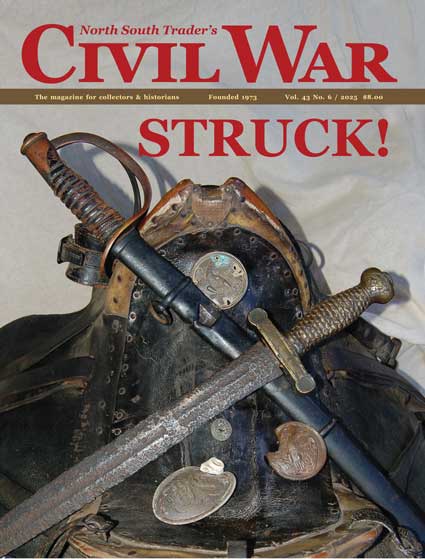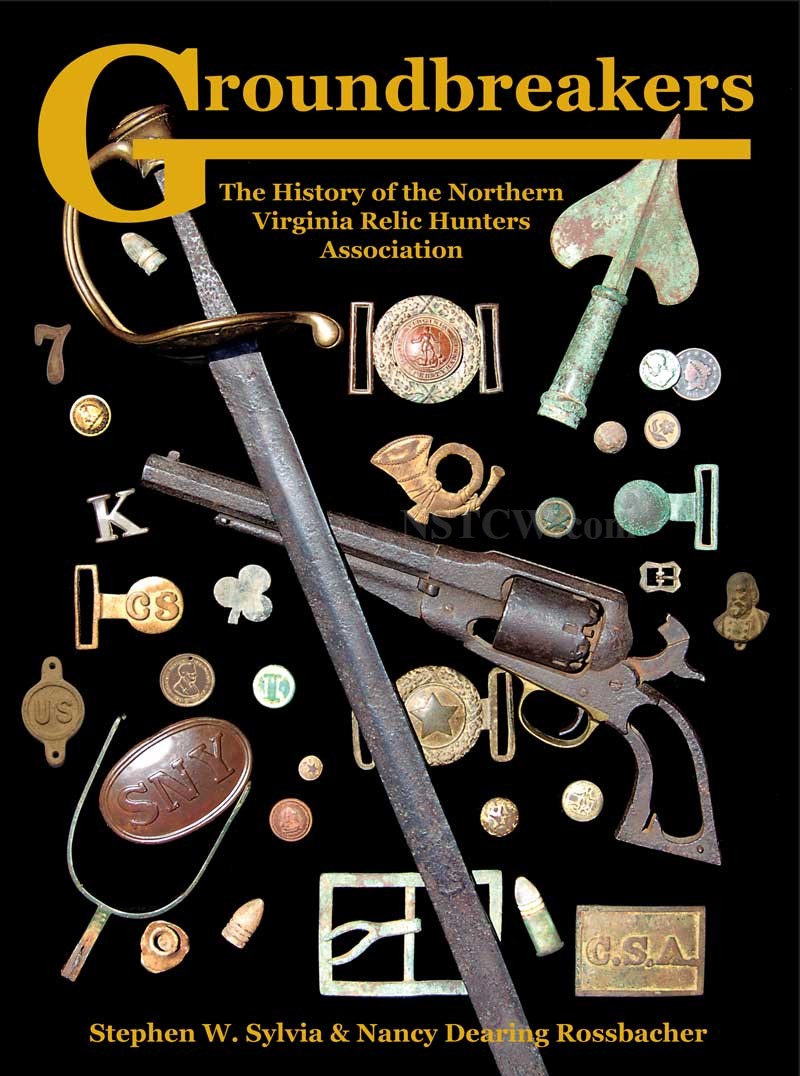|
Publisher's Forum Issue: 37-6 |
|
Genuine Heros I noticed many years ago that, in general, those Americans of the Civil War era who were literate wrote very well. Their spelling is sometimes somewhat, shall we say, creative, and their penmanship can pose challenges to the 21st-century reader, but the sentence construction is strong, the adjectives are precise, and the presentation is logical, clear, and expressive. There was little sarcasm or ambiguity. Emotion was constrained, but affection and ire are both evident. It is obvious that letter writing was a praiseworthy skill that required time and effort to accomplish. I was also aware that, on the whole, words meant the same then as they do today. It was modern English, which made for easier comprehension than, say, reading "Beowulf" or Chaucer or even Shakespeare. The Bard used words and expressions that are today archaic and can, without helpful explanatory footnotes, defy understanding. Until I grasped the English language of the 1600s, reading the astonishing works of William Shakespeare was tedious. Actually, it was an outright pain. "Wherefore art thou?" seemed silly compared to "Where are you?" And what about all those other words? Brickle, eld, nim, terrestrious, sennight and dozens more have long disappeared from our lexicon. One side benefit of learning to understand Shakespeare is that it made me realize how dramatically a language evolves. Words lose their meaning, or their meaning shifts, and sometimes their pronunciations and spellings alter. Entire expressions fall by the wayside or stay in use with no relevance to the original application. Expressions such as "lock, stock, and barrel," for example, still convey the concept of total or complete, but few people are aware of the origin and relevance to a shoulder arm. As we all know, language is composed of words, and every word has a meaning. We also know that language evolves, presumably for the better, enabling a culture to improve its communication skills. The use of a word may change over time to mean something more precise or more in keeping with "modern" usage. Some words emerge to suit new technologies or inventions; they may come into vogue simply due to novelty. Most of these changes are logical, understandable, and are recognized as improvements. But not always. The word gay, for example, has a completely different association than it did a half century ago. No one today refers to anyone as gay simply because they are carefree and cheerful. Not too long ago a fag was a cigarette. Another example is niggardly, which has fallen into disuse because it sounds racist even though its only meaning is "stingy" or "miserly." More recently, there's the rampant misuse and abuse of the once meaningful word awesome. It used to mean that which is awe inspiring. The Grand Canyon is awesome; men walking on the moon is awesome. In today's buzzword usage, a grape Slurpee and a sale at Target are awesome, usually expressed with three exclamation points. Maybe the Grand Canyon is now simply neat-o. And then there's the word unique, meaning --- literally --- the only one of its kind. The editor is on a mission, perhaps a losing one, to see that it retains that meaning and to see that it maintains its status as a superlative. Many collectibles are significant; only a very, very few are unique, and none can be more unique or less unique than another. Don't get her started on the nonsensical uniquer or uniquest. Examples such as these may not, in the opinion of some, pose drastic losses to the English language, but there is one word for which any change deeply vexes me. One is the liberal use of the word hero. Not too long ago it meant someone of unusual courage who took great personal risk for the sake of others. Very often the person to whom the word was applied was someone who knowingly and willingly risked or sacrificed his or her life for others. For example, I consider that Medal of Honor awardees are examples of genuine American heroes. Today, the word is losing its significance as it is being applied to an ever-widening range of people. To some it now applies to anyone who has ever donned a uniform or engaged in a career in which risk is even remotely involved. I've read that all teachers are now heroes. The implication is that anyone who is the victim of bad luck, has an unfortunate accident, or contracts an illness is instantaneously elevated to the status of a hero. They may suffer with bravery or stoicism, yes, but a hero is a thing apart. We have all by now heard the expression "sports heroes." Unless the athlete has risked his life to save a child from a stampeding crowd of sports fanatics, he's just an overpaid athlete. Marrying a Kardashian isn't enough --- although, who knows what goes on behind those doors. Scoring touchdowns or hitting a golf ball into a tiny cup doesn't make one a hero. Dedicated, absolutely. Hard working, quite possibly. Heroic, no. I read recently of a US Navy pilot who died in a helicopter crash while on a routine flight stateside. While his death is tragic, the fact that he died wearing a US military uniform doesn't elevate him to the status of hero just because he died on duty. If it does, what new word can be used to describe the sacrifices of a Davy Crockett, John Pelham, Alvin York, or Audie Murphy? It seems we have ignored words such as courageous, noble, compassionate, and selfless, and replaced them all with "hero." I looked up the Internet description of the word and was surprised to read that among the examples of a hero is "a person who is greatly admired" and "the chief male character in a story, play, or movie, etc." How did this drastic broadening --- or dumbing down, if you will --- of the definition of the word hero occur? It seems that we have now reached the stage where simply doing the right thing elevates one to lofty heights. Since all, or most, of our mothers admire us, are we all heroes? If we all qualify as heroes by virtue of living our lives, what signifies a coward? I grew up thinking a coward was someone who ran from a fight, lacked the guts to do the right thing, or was generally just weak of will. I suppose such actions no longer carry the stigma they once did. So, what makes a hero? Does enlisting in the military, joining the police force, or serving with the fire department immediately earn one that title? It seems that that word that once signified a person who was exceptionally courageous is now automatically bestowed on nearly everyone. I remember asking my father when I was a boy if he was a hero in World War II. He didn't hesitate to answer "No," despite the fact that he was injured in action in the Pacific. When the heroic Maj. Richard Winters of the 101st Airborne, the central character in Stephen Ambrose's Band of Brothers, was asked by his grandson if he was a hero he answered, "No, but I served in the company of heroes." Like many combat veterans he considered the only real heroes to be those who died in combat. I don't think Maj. Winters would have agreed that an NFL quarterback, an emergency room orderly, or an army quartermaster are heroes. They may be noble, compassionate, courageous, or selfless, but even possessing those virtues doesn't qualify for the rarified title of hero. Hero is a special word for someone of extraordinary courage. True heroism is rare and something we may aspire to all our lives and never come close to attaining. It shouldn't be applied to anything less. --- Pub.
|
| Past Publisher's Forums click an issue number to view |
| 43-6 |
| 43-5 |
| 43-4 |
| 43-3 |
| 43-2 |
| 42-3 |
| 42-3 |
| 42-3 |
| 42-3 |
| 42-3 |
| 41-6 |
| 41-5 |
| 41-1 |
| 40-5 |
| 40-4 |
| 40-3 |
| 40-1 |
| 39-6 |
| 39-5 |
| 39-4 |
| 39-3 |
| 39-2 |
| 39-1 |
| 38-3 |
| 38-2 |
| 38-1 |
| 37-5 |
| 37-4 |
| 37-3 |
| 37-2 |
| 37-1 |
| 36-9 |
| 36-6 |
| 36-5 |
| 36-4 |
| 36-3 |
| 36-2 |
| 36-1 |
| 35-6 |
| 35-5 |
| 35-4 |
| 35-3 |
| 35-2 |
| 35-1 |

